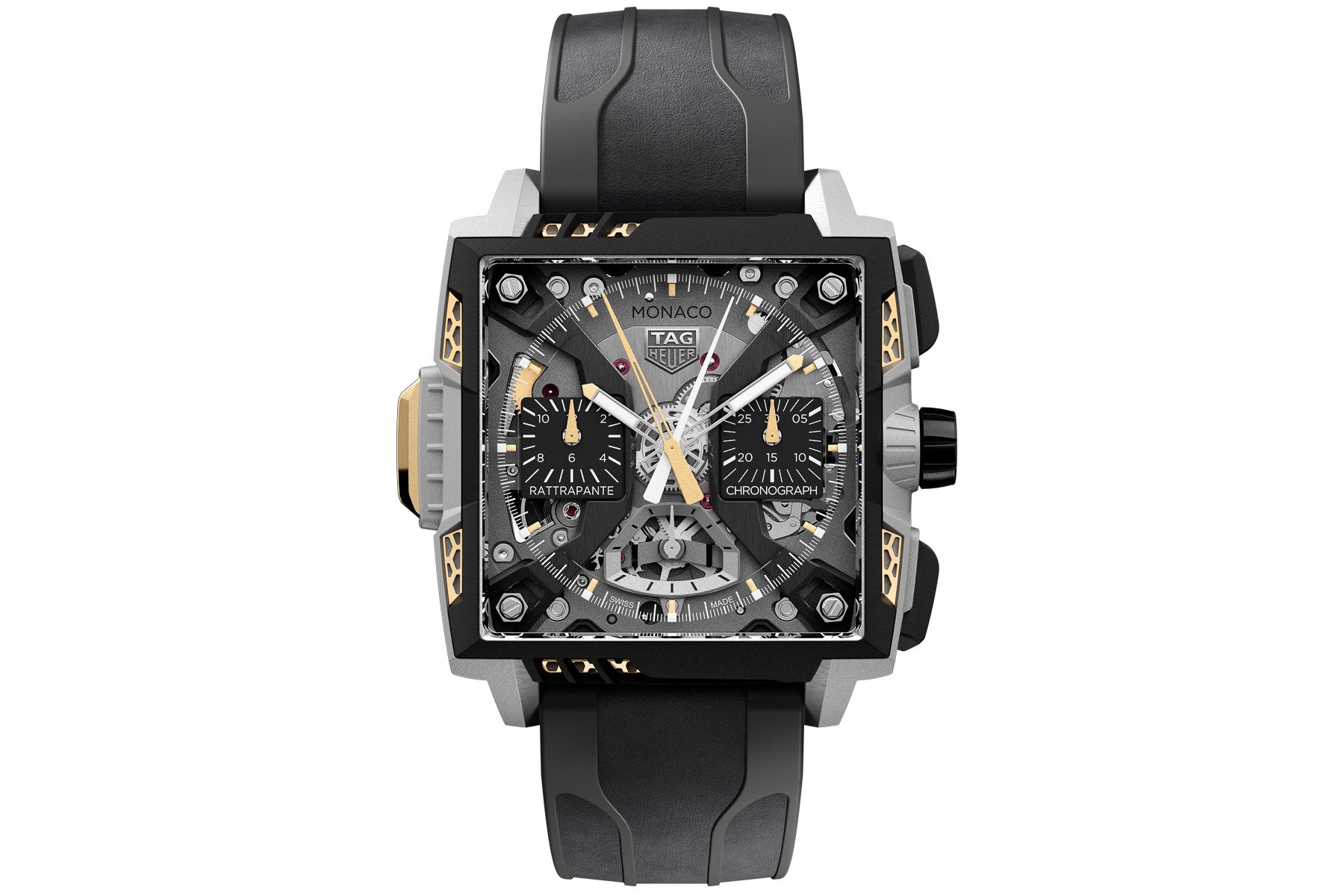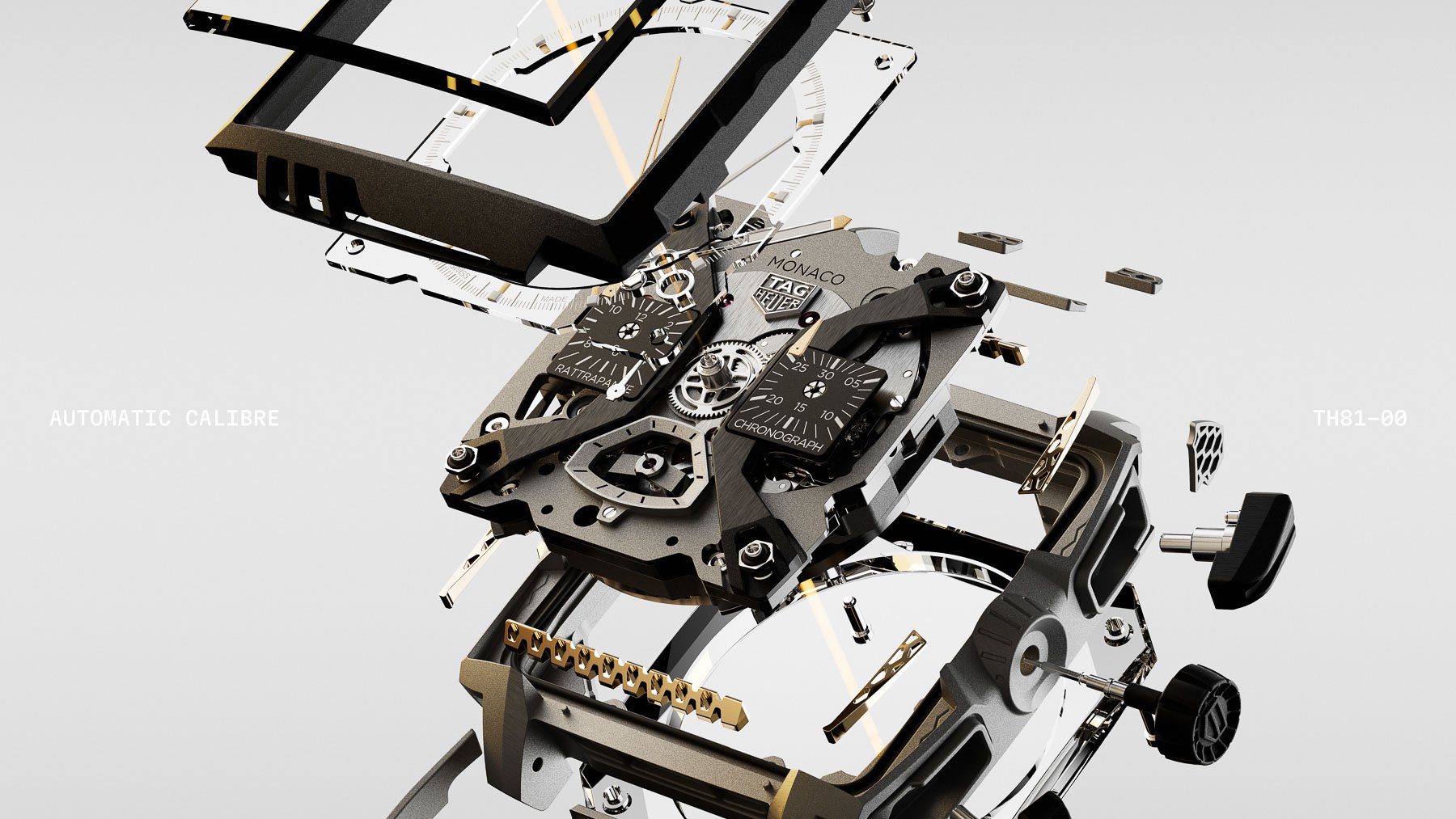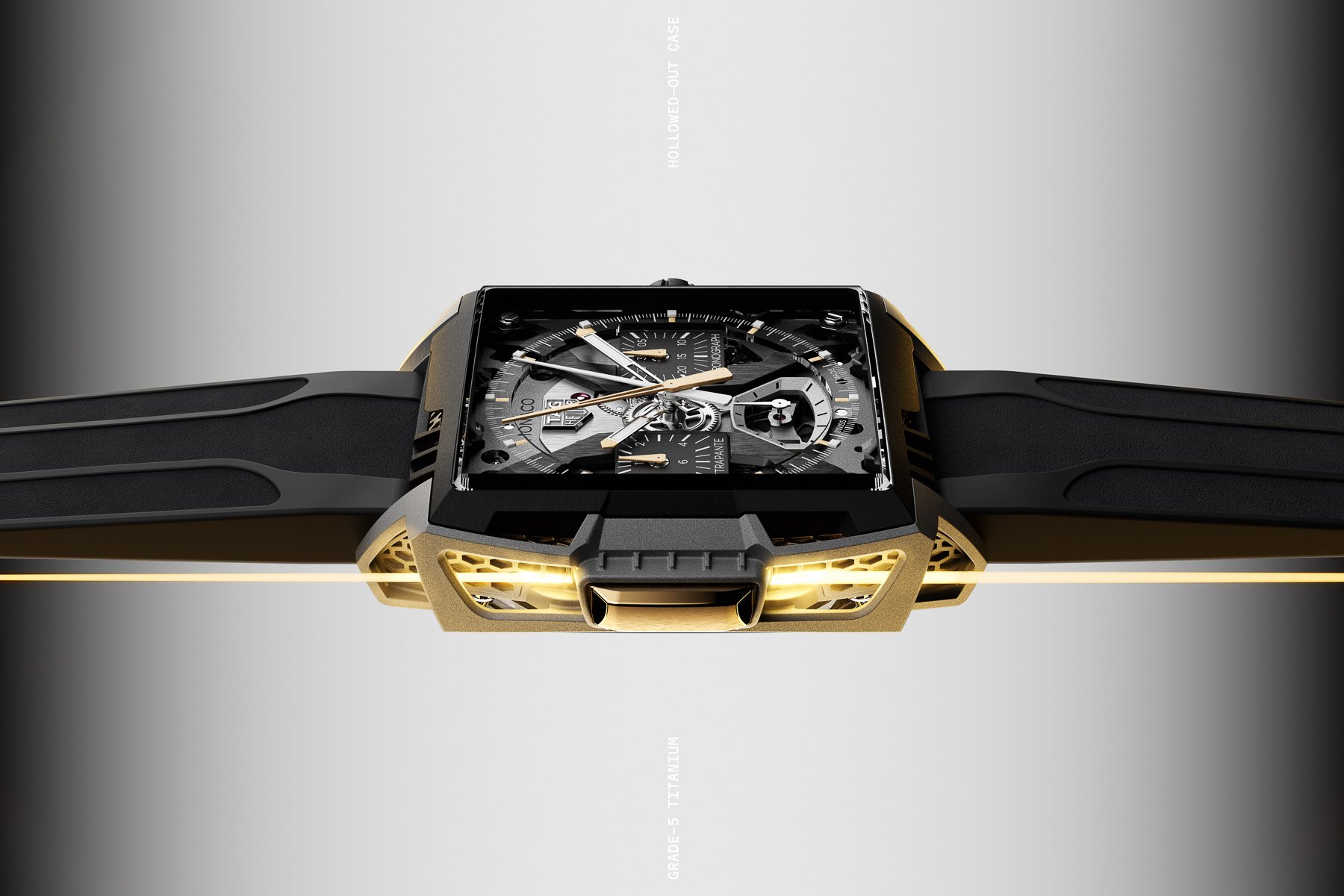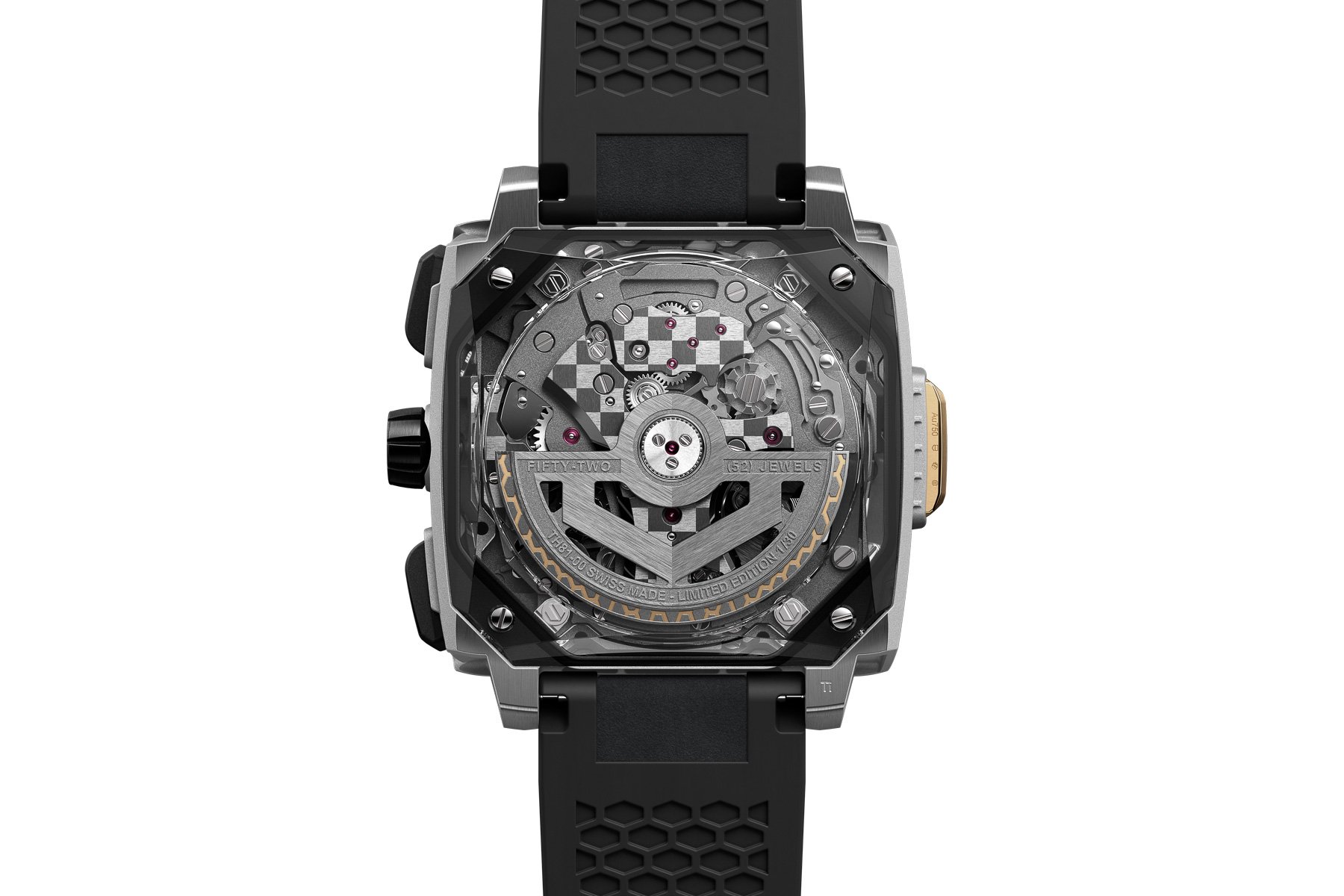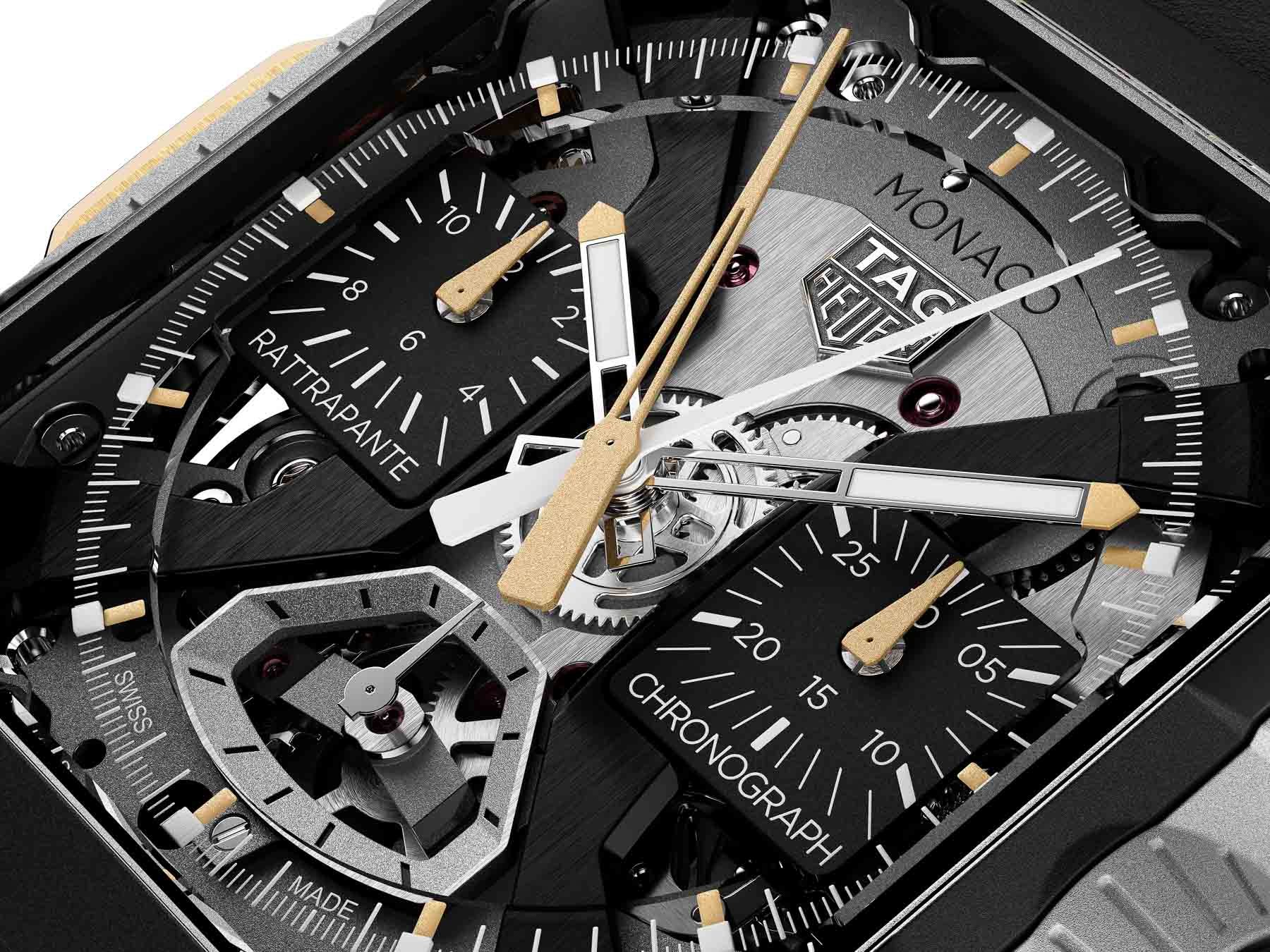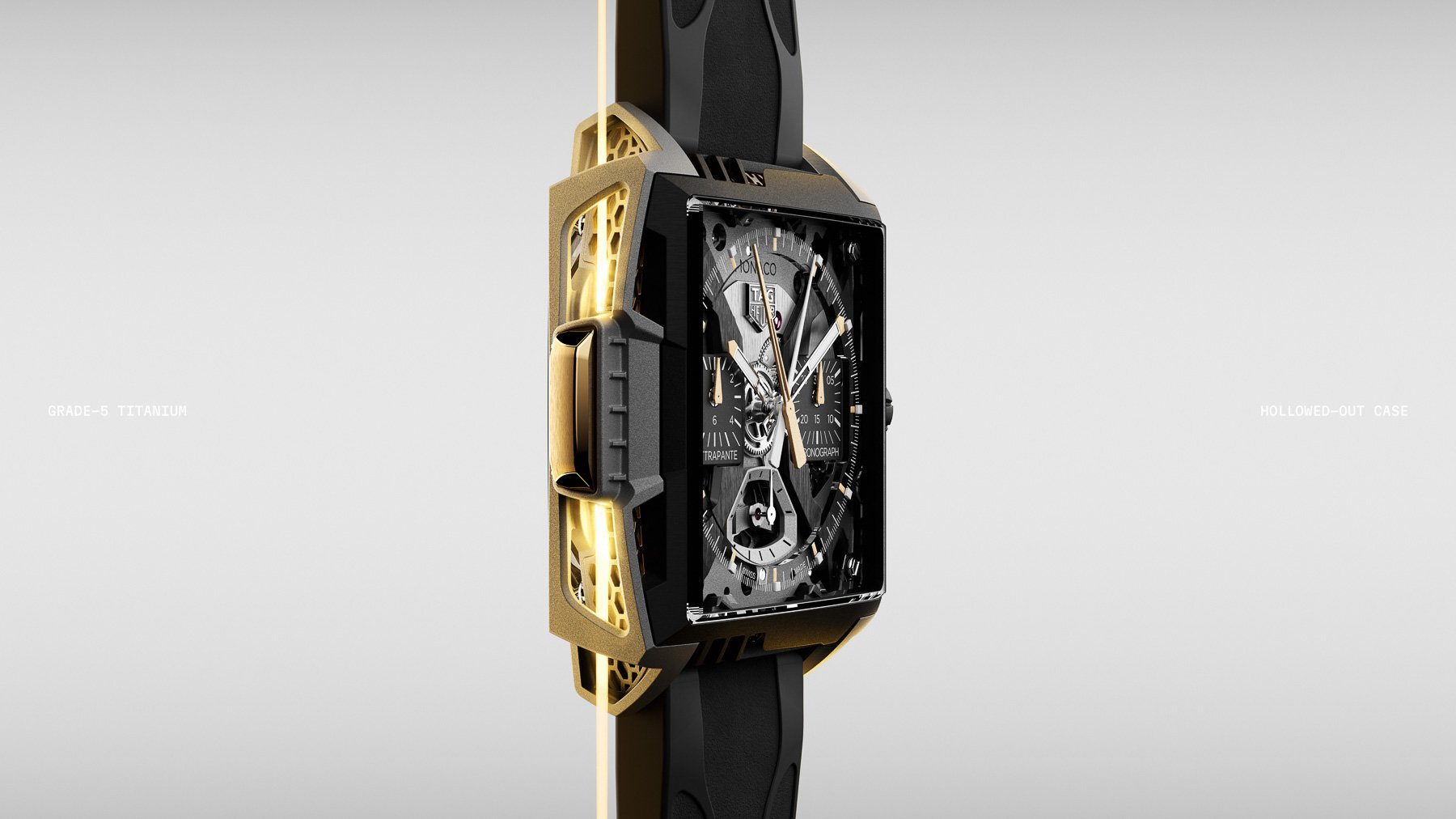Introducing: The TAG Heuer Monaco Split-Seconds Chronograph Air 1
TAG Heuer is best known for its attainable racing-inspired chronographs. However, every so often, the official timekeeper of Formula 1 drops an exotic timepiece. Today’s new Monaco Split-Seconds Chronograph Air 1 debuts at Dubai Watch Week, and we’re excited to take a closer look.
Avant-garde watches are a relatively normal occurrence from TAG Heuer. While many of the brand’s designs are rooted in the past, we enjoy the occasional futuristic release. In my opinion, the best use the Monaco as a base. The new Monaco Split-Seconds Chronograph Air 1, however, is not simply a color variant. As we’ll see, it introduces a new case-making technology, and it looks fantastic.
The TAG Heuer Monaco Split-Seconds Chronograph Air 1
As a longtime vintage chronograph collector and racing fan, I’ve always been attracted to the thought of drivers using their instruments as tools. Of course, that time has long since passed. Still, it’s fun to consider, but it’s even more exciting to envision the type of modern mechanical watch a driver would wear now if a watch were truly necessary in the cockpit. Most current options are attractive, but many follow the same classic formula. That’s why I’m so enthralled by the new Monaco Split-Seconds Chronograph Air 1. It looks fresh and appropriate for a present-day driver.
What a case!
The watch works with the current Monaco’s 41mm by 47.9mm dimensions, but the comparisons end there. The case is a wild amalgam of Grade 5 titanium, sapphire, and 2N yellow gold. Instead of using a traditional CNC-machined case, TAG Heuer applied Selective Laser Melting (SLM) technology to build the case layer by layer from Grade 5 titanium powder. A laser melts the powders and fuses them to create a near-final shape, which can then be polished. The outer case and side lattice structures are made using this time-intensive process. As a testament to the difficulty of the technology, it takes five times longer than traditional machining. The result, however, is a strong but skeletonized 15.2mm-thick case weighing 85 grams. Finally, the right side of the case has black DLC pushers and a tapered crown.
In addition to the titanium bits, the Air 1 uses SLM technology on the 18K yellow gold lattice pieces below the black DLC-coated bezel. These pieces are on the lug sides of the case. We also find a gold rattrapante pusher on the case’s left flank.
The flagship chronograph movement, the 81-00
The new Monaco Air 1 uses the brand’s top-level chronograph movement, the 81-00. This impressive automatic column-wheel caliber is a thoroughbred with 65 hours of power reserve and a high frequency of 36,000vph. Functionally, it powers a standard chronograph and a desirable split-seconds complication. Case backs aren’t always a highlight, but on this watch, the cover is made entirely from sapphire and is affixed via four screws. Somehow, the watch has a 30m water resistance rating.
While I’m often critical of TAG Heuer’s frequent decision to adorn its chronographs with a sub-dial for running seconds, it works perfectly here. The 12-hour and 30-minute totalizers are somewhat traditional, each displaying white markings on a black background. However, the sub-seconds register at the bottom looks like a gauge from a race car. Above the skeletonized surface, the Monaco has a clear sapphire dial with a minute track, luminous blocks, and lacquered gold indexes. This golden hue matches the tips of the hour and minute hands, as well as all three of the chronograph hands. For a progressive design, I think it looks fantastic and well composed.
The Air 1 is rare air
TAG Heuer will produce 30 numbered pieces of the Monaco Split-Seconds Chronograph Air 1, which seems like a relatively generous production run considering the price. Yes, that’s the sticky part because this watch costs CHF 150,000. Is that a lot? For sure, but I’m sure the case technology, looks, and complication will appeal to plenty of well-heeled motorsports fans. Some of these watches may even find their way to the wrists of some of the current drivers.

